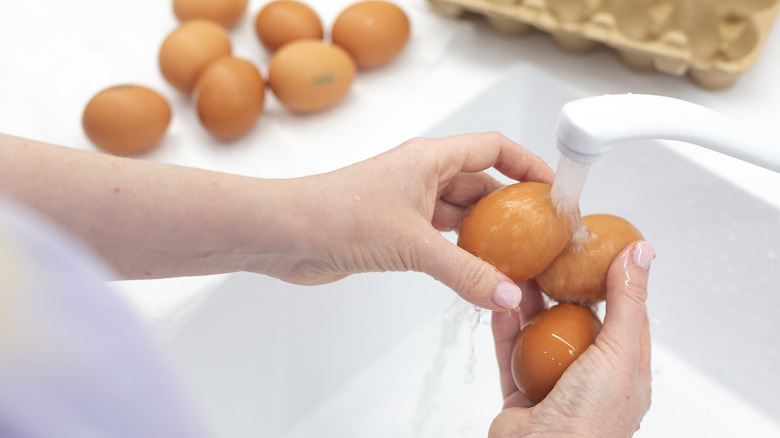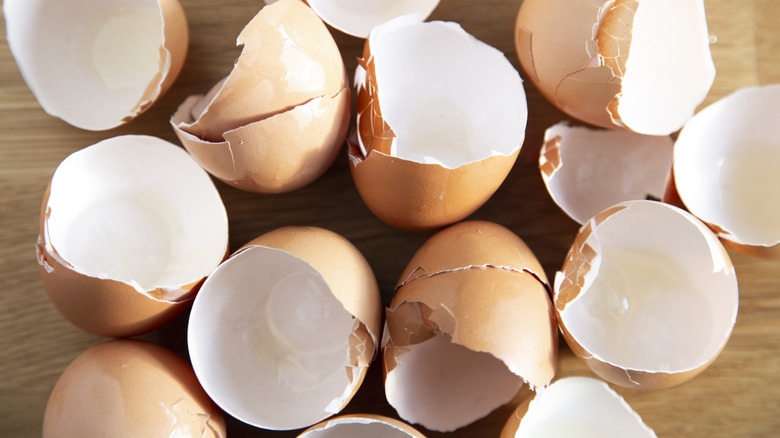Wait, Should You Be Washing Your Eggs?
Eggs are some of the most nutritious foods on the planet. They are filled with vitamins and minerals and have been found to increase good cholesterol or HDL when eaten every day. Eggs are so versatile, too — you can poach them in the microwave, add them to your oatmeal, and give the hard-boiled variety a tasty pickling. Another thing you can do is wash them — but should you?
Actually, washing your eggs isn't such a great idea, whether they're farm-fresh or store-bought. You see, the shell provides a barrier between the outside world, which is teeming with bacteria, and what's inside. The shell is also porous and, when it gets wet, the water, as well as anything lurking on the surface, can get absorbed and contaminate the yolk and whites within. Due to farming conditions, eggs can have salmonella enteritidis bacteria lurking on them, which can transfer through the shell when washed.
Hens also naturally put a protective coating, called a "bloom," over their eggs when they lay them, and rinsing them with water washes away that protection. Store-bought eggs actually do get washed before they hit supermarket coolers, but that is done by professionals who follow strict government guidelines and use special sanitization machines.
Best practices for egg storing, handling, and cooking
So, you know you shouldn't wash your eggs, farm-fresh or store-bought, but what about refrigerating them? Store-bought eggs are best stored in their original container, and should always be kept refrigerated (for up to three weeks). Like most foods, you shouldn't leave your eggs out on the counter for longer than two hours. Eggs that were recently laid and have come to you directly from the hen — for example, if they were purchased from a farmer or a friend who has chickens — don't need to be refrigerated, as long as they haven't been washed. However, keeping unwashed, fresh eggs in the fridge can still help them last up to six weeks longer.
To help prevent cross-contamination from raw eggs, you should give anything that they might have come into contact with — cutting boards, cooking tools, and yes, your hands — a good wash with soap and water. And, while eggs should be cooked until firm in order to be considered safe for consumption if you do prefer them over easy (or in any other "undercooked" form), consider buying pasteurized eggs to help mitigate the risk of salmonella poisoning.

